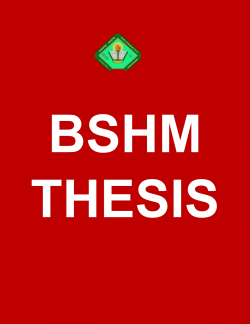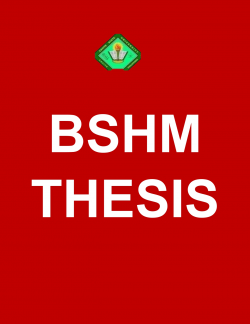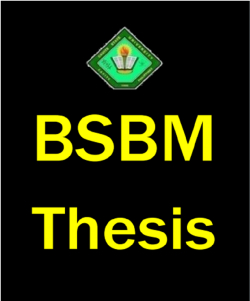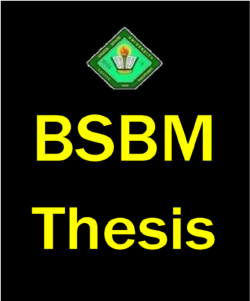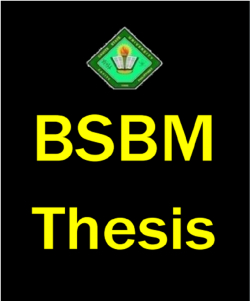Trust and Love Language in Relationship Satisfaction among Selected Live-In Couples.
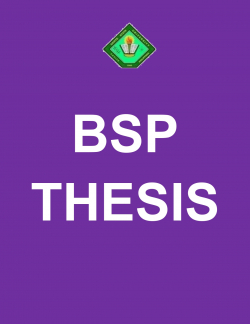
Type
Thesis
Authors
Category
Thesis-BSP
[ Browse Items ]
Publication Year
2024
Subject
Marriage—Psychological aspects. Man-woman relationships. Interpersonal communication—Psychological aspects. Trust—Psychological aspects. Unmarried couples—Psychological aspects. Relationship satisfaction. Love—Psychological aspects.
Abstract
This study explored the complex interactions and nuances of trust, love
language, and relationship satisfaction among live-in couples in Manila. Through a
mixed methods approach, combining quantitative and qualitative methodologies, the
research aimed to illuminate how these elements interact within such relationships.
Drawing from Chapman's Love Languages framework and fundamental trust
principles, the study explored their contribution to the overall well-being of cohabiting
couples. Quantitative data from 246 participants reveal demographic trends and
statistical correlations, shedding light on trust levels, love language preferences, and
relationship satisfaction patterns. Qualitative insights from interviews with 10
participants offered a deeper understanding of personal experiences, perceptions, and
communication patterns related to trust and love language in the context of relationship
satisfaction.
Thematic analysis was employed to discern recurring patterns and themes
within the qualitative data. This method facilitated a systematic exploration of
participants' narratives, allowing for the identification of overarching themes related to
trust, love language, and relationship satisfaction among cohabiting couples. Through
an iterative process of coding and categorization, themes such as perceptions of
trustworthiness, experiences of love language compatibility, and communication
dynamics emerged from the data. The qualitative analysis provided nuanced insights
into participants' lived experiences and subjective interpretations, offering a deeper
understanding of the complex interplay between trust, love language, and relationship
dynamics in the context of cohabitation.
In conjunction with the qualitative analysis, purposive sampling was employed
to select participants who could offer rich and diverse perspectives on the research
topic. This sampling technique ensured that the sample represented a range of
experiences and viewpoints relevant to the study's objectives. By purposively selecting
participants based on criteria such as sex, age, length of relationship, and number of
children, the study aimed to capture a comprehensive understanding of trust and love
language dynamics within cohabiting relationships. This approach facilitated a
nuanced exploration of how different demographic factors may influence individuals'
experiences and perceptions of trust and love language expression in their
relationships.
The findings suggest that trust, particularly in terms of dependability, plays a
significant role in fostering relationship satisfaction among cohabiting couples.
Additionally, the study highlights the importance of love language compatibility and
effective communication in nurturing intimacy and mutual understanding within these
relationships. The study underscores the critical role of trust and the nuanced
application of love languages in fostering relationship satisfaction among cohabiting
couples in Manila.
language, and relationship satisfaction among live-in couples in Manila. Through a
mixed methods approach, combining quantitative and qualitative methodologies, the
research aimed to illuminate how these elements interact within such relationships.
Drawing from Chapman's Love Languages framework and fundamental trust
principles, the study explored their contribution to the overall well-being of cohabiting
couples. Quantitative data from 246 participants reveal demographic trends and
statistical correlations, shedding light on trust levels, love language preferences, and
relationship satisfaction patterns. Qualitative insights from interviews with 10
participants offered a deeper understanding of personal experiences, perceptions, and
communication patterns related to trust and love language in the context of relationship
satisfaction.
Thematic analysis was employed to discern recurring patterns and themes
within the qualitative data. This method facilitated a systematic exploration of
participants' narratives, allowing for the identification of overarching themes related to
trust, love language, and relationship satisfaction among cohabiting couples. Through
an iterative process of coding and categorization, themes such as perceptions of
trustworthiness, experiences of love language compatibility, and communication
dynamics emerged from the data. The qualitative analysis provided nuanced insights
into participants' lived experiences and subjective interpretations, offering a deeper
understanding of the complex interplay between trust, love language, and relationship
dynamics in the context of cohabitation.
In conjunction with the qualitative analysis, purposive sampling was employed
to select participants who could offer rich and diverse perspectives on the research
topic. This sampling technique ensured that the sample represented a range of
experiences and viewpoints relevant to the study's objectives. By purposively selecting
participants based on criteria such as sex, age, length of relationship, and number of
children, the study aimed to capture a comprehensive understanding of trust and love
language dynamics within cohabiting relationships. This approach facilitated a
nuanced exploration of how different demographic factors may influence individuals'
experiences and perceptions of trust and love language expression in their
relationships.
The findings suggest that trust, particularly in terms of dependability, plays a
significant role in fostering relationship satisfaction among cohabiting couples.
Additionally, the study highlights the importance of love language compatibility and
effective communication in nurturing intimacy and mutual understanding within these
relationships. The study underscores the critical role of trust and the nuanced
application of love languages in fostering relationship satisfaction among cohabiting
couples in Manila.
Description
This undergraduate thesis investigates the interplay between trust, love language, and relationship satisfaction among selected live-in couples in Manila using a mixed-methods approach. Grounded in Gary Chapman's Five Love Languages theory and psychological trust constructs, the study integrates quantitative analysis of data from 246 participants with qualitative interviews from 10 purposively selected individuals. Quantitative findings reveal patterns in trust levels, preferred love languages, and their correlation with overall relationship satisfaction. The qualitative portion, analyzed using thematic coding, uncovers rich personal narratives and key themes such as trustworthiness, compatibility in love languages, and communication dynamics within cohabiting partnerships. The study emphasizes how dependability and emotional connection—shaped through trust and aligned love language expression—significantly influence relationship well-being. It also acknowledges demographic factors such as age, sex, and length of relationship as contributors to variations in these dynamics. The research offers insights valuable to relationship counselors, psychologists, and individuals navigating the complexities of live-in romantic partnerships.
Biblio Notes
Alentejo, B. M. C., Diaz, M. E., Duja, M. D., Eduarte, M., & Padida, M. A. P. (2024). Trust and love language in relationship satisfaction among selected live-in couples (Undergraduate thesis). Cavite State University – Bacoor City Campus, City of Bacoor, Cavite. Adviser: Mr. Zannie I. Gamuyao.
Number of Copies
1
| Library | Accession No | Call No | Copy No | Edition | Location | Availability |
|---|---|---|---|---|---|---|
| CvSU Bacoor City Campus | 5000068 | 1 | Yes |
